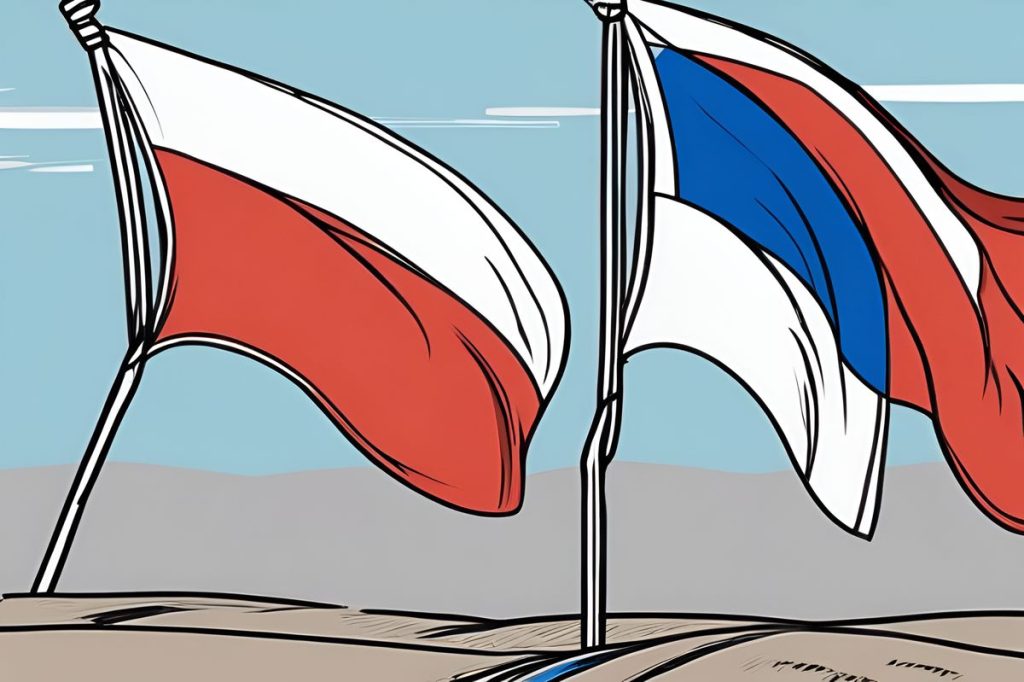In response to French President Macron’s suggestion of European troops potentially engaging in Ukraine, Russia’s Intelligence Chief Sergei Naryshkin scolded the remarks as highly irresponsible, calling them extremely dangerous and expressing concern over European leaders’ lack of political responsibility. The tension between Russia and the West is palpable, as Macron’s openness to the idea of European troops in Ukraine raises the stakes in an already heightened situation, with key world powers cautioning against further escalation that could lead to a third world war.
What was Russia’s response to French President Macron’s suggestion of European troops possibly engaging in Ukraine?
Russia’s Intelligence Chief Sergei Naryshkin criticized President Macron’s remarks as highly irresponsible, marking them as an extremely dangerous approach to international diplomacy and expressing concern over European leaders’ lack of political responsibility.
A Contentious Stance on European Troop Deployment
In a statement that has caused ripples across international diplomatic circles, French President Emmanuel Macron has not dismissed the possibility of European troops engaging Russian soldiers in Ukraine directly. This suggestion comes amidst a time when the tension between Russia and the West is palpable. While there’s been no consensus among European nations on this matter, Macron’s openness to “not excluding anything” indicates a stance that could escalate the already heightened situation. It’s critical to note that other major powers, such as the United States and key European allies, have maintained that there are no imminent plans to send troops into the conflict.
The ongoing confrontation in Ukraine has thrown Moscow’s relations with Western nations into a state of crisis reminiscent of the 1962 Cuban Missile Crisis. Russian President Vladimir Putin has cautioned the international community about the potential escalation to nuclear warfare should foreign troops enter the fray in Ukraine.
Russia’s Response to Macron’s Comments
Sergei Naryshkin, head of Russia’s Foreign Intelligence Service, labeled Macron’s comments as highly irresponsible. Speaking to state television, he expressed dismay over what he considers a lack of political responsibility among European leaders, singling out the French president’s remarks. According to Naryshkin, these kinds of statements are fraught with extreme danger and represent a dismaying approach to international diplomacy. He further lamented the current European and North Atlantic political elites’ negotiating abilities, suggesting a decline in common sense.
The conversation around nuclear capabilities cannot be taken lightly, as both Russia and the United States possess the largest stockpiles of nuclear weapons in the world. U.S. President Joe Biden has also shared concerns, warning that a direct confrontation between Russia and NATO forces could be the catalyst for a third world war.
The State of Conflict in Ukraine
Since Russia’s incursion into Ukraine in 2022, Western leaders have vocalized their commitment to assist Ukraine in repelling Russian forces. Last year, Ukraine managed to reclaim significant portions of its territory. However, the current year has presented new challenges. Despite a vigorous counteroffensive, Ukrainian forces have struggled to make headway against entrenched Russian positions. Meanwhile, Russian troops have continued to advance into Ukrainian-held territories.
Currently, Russia occupies a sizeable portion of land that is internationally recognized as part of Ukraine. This occupation persists as the United States grapples with internal political debates over the extent of its support for Ukraine. The situation on the ground remains volatile, with the international community closely monitoring the developments and the potential implications for global security.
International Repercussions of the Conflict
The idea of European involvement in the Ukrainian conflict has significant consequences for international relations. With global power dynamics at a tipping point, the actions and words of world leaders are scrutinized for their potential to either defuse or inflame the situation. The discussions around troop deployment and military support are not just about immediate tactical advantages but also about setting the tone for international diplomacy in a world that is increasingly interconnected yet divided on fundamental issues of security and sovereignty.
While the situation in Ukraine continues to evolve, the international community must navigate the complexities of the conflict with a balance of strategic foresight and diplomatic sensitivity. How global leaders respond in the coming months could redefine the future of not only Europe but the stability of the international order.
What was Russia’s response to French President Macron’s suggestion of European troops possibly engaging in Ukraine?
Russia’s Intelligence Chief Sergei Naryshkin criticized President Macron’s remarks as highly irresponsible, marking them as an extremely dangerous approach to international diplomacy and expressing concern over European leaders’ lack of political responsibility.
What is the current state of conflict in Ukraine between Russia and Ukrainian forces?
Since Russia’s incursion into Ukraine in 2022, the conflict has escalated with Russian forces making advances into Ukrainian-held territories. Despite Ukrainian counteroffensives, Russian troops have continued to occupy a significant portion of land internationally recognized as part of Ukraine.
How have other world powers like the United States responded to the possibility of European troops engaging in Ukraine?
The United States and key European allies have not expressed plans to send troops into the conflict in Ukraine. U.S. President Joe Biden has shared concerns about a direct confrontation between Russia and NATO forces potentially leading to a third world war.
What are the international repercussions of the conflict in Ukraine and discussions around European troop involvement?
The discussions around potential European troop engagement in Ukraine have significant consequences for international relations. With global power dynamics at a tipping point, world leaders’ actions and words are closely scrutinized for their potential to either defuse or inflame the situation. The international community must navigate the complexities of the conflict with strategic foresight and diplomatic sensitivity to ensure stability in the international order.

